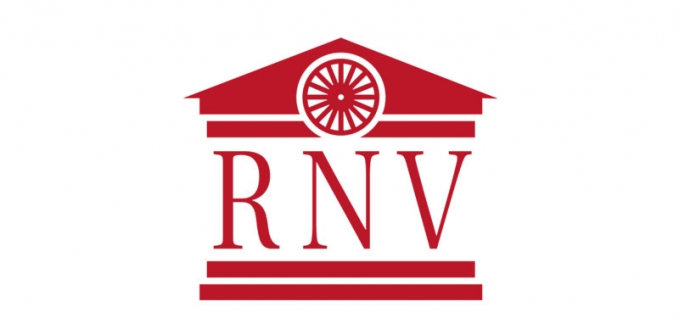Fokus ROMI.HR
/
U noći 9. studenog 1938. godine, na tisuće domova, bolnica, škola i hramova u Njemačkoj razoreno je u svega nekoliko sati. Desetine tisuća muškaraca je uhićeno, na stotine njih je ubijeno ili pretučeno tokom te noći i narednog dana. Jedino zajedničko za sve žrtve bilo je njihovo podrijetlo – svi su bili Židovi. Ovaj događaj poznat je kao „Kristallnacht“, odnosno „Kristalna noć“ zbog razbijenog stakla koje je bilo rasuto svuda po ulicama nakon što su razbijeni prozori na zgradama koje su propadale Židovima.
Zvjerstva počinjena nad Židovima 9. studenog 1938. godine nisu prvi slučajevi nasilja iz ksenofobije, ali po prvi put Njemačka je svjedočila tako masovnom kolektivnom kažnajavanju. Svi Židovi su, kao skupina, smatrani odgovornim za ubojstvo Ernsta von Ratha, njemačkog diplomata u Francuskoj, kojeg je usmrtio sedamnaestogodišnji Židov Herschel Grynszpan. Grynszpan je ustrijelio von Ratha u Njemačkom veleposlanstvu u Parizu, nakon što je primio pismo od rodbine s njemačko-poljske granice, u kojem opisuju protjerivanje njihove obitelji. Slijedećeg dana, Njemačka vlada osvetila se tako što je zabranila djeci Židova da pohađaju njemačke državne osnovne škole, obustavila je održavanje židovskih kulturnih programa i zabranila objavljivanje židovskih novina i časopisa. Prema riječima Josepha Goebbelsa, „Kristalna noć“ je uslijedila kao „spontano iskazivanje ogorčenosti zbog ubojstva Ernsta von Ratha počinjeno od strane mladog Židova Grynszpan“.

U Europi i šire, svake godine se 9. studeni obilježava kao dan sjećanja na žrtve ovog masovnog pogroma, ali i kao odavanje počasti svim onim ljudima koji su u povijest patili zbog fašizma, ksenofobije i diskriminacije. Međutim, nasilje prouzrokovano različitošću nije prestalo postojati. Obilježavanje Međunarodnog dana borbe protiv fašizma i antisemitizma ima za cilj i promicanje svijesti o rasizmu, ekstremizmu krajnje desnice i neofašizmu danas. Milioni širom svijeta i dalje se susreću s mržnjom jer su drugačije etničke pripadnosti, religije, klase i tako dalje.
Deset godina nakon „Kristalne noći“, točnije 10. prosinca 1948. godine, Opća skupština Ujedinjenih naroda proglasila je Opću deklaraciju o ljudskim pravima kao standard zajednički za sve ljude i sve narode. Članak 1. Opće deklaracije glasi:
„Svi ljudi rođeni su slobodni i jednaki u dostojanstvu i pravima. Obdareni su razumom i savješću te se jedni prema drugima trebaju ophoditi u duhu bratstva“.
Nakon više od sedamdeset godina od završetka Drugog svjetskog rata, ove riječi su još uvijek daleko od opće prihvaćenih. Porast nejednakosti među ljudima u posljednjih nekoliko godina širom svijeta, kao i porast nasilja u mnogim društvima, ukazuju na to da tamne stranice ljudske povijesti nisu zatvorene, već se otvaraju iznova.
Europska mreža nevladinih organizacija UNITED for Intercultural Action odnosno Ujedinjenje za interkulturalno djelovanje, koja je 9. studenog 1995. godine započela obilježavanje Međunarodnog dana borbe protiv fašizma i antisemitizma, upozorava na opasnost od svih oblika socijalne isključenosti, posebno diskriminacije zasnovane na etničkoj pripadnosti i rasi.
Danas, u subotu 9. studenog, na Trgu žrtava fašizma u Zagrebu, u organizaciji Antifašističke lige, održati će se okupljanje u sjećanje na žrtve ovih tragičnih događaja. Skup će početi u 18 sati.

Remembering the victims of ''Crystal Night''
On the night of November 9th 1938, thousands of homes, hospitals, schools, and temples in Germany were devastated in a matter of hours. Tens of thousands of men were arrested, hundreds were murdered or took their own lives during the night and in the following days. The only thing the victims had in common was their origin – they were all Jews. These events are knowns as Kristallnacht, or the “Crystal Night” referring to the shards of broken glass that were scattered on the streets after the windows of Jewish-owned buildings were shattered.
The atrocities over the Jews on November 9th were not the first instance of xenophobic violence, but for a first time Germany witnessed such a massive act of collective punishment. The Jews as group were all held responsible for the murder of Ernst vom Rath, a German diplomat in France, by a seventeen-years-old Jew Herschel Grynszpan. Grynszpan shot dead vom Rath in the German Embassy in Paris after receiving a letter from his relatives from the German-Polish border describing the family's expulsion. The next day, the German government retaliated, barring Jewish children from German state elementary schools, indefinitely suspending Jewish cultural activities, and putting a halt to the publication of Jewish newspapers and magazines. The Crystal Night, described by Joseph Goebbels as "spontaneous manifestations of indignation against the murder of Herr Vom Rath by the young Jew Grynszpan” followed.

Every year, in Europe and beyond, November 9th is dedicated to commemorate the victims of this massive pogrom, as well to pay tribute to all the ones who suffered from fascism, xenophobia, and discrimination throughout history. Difference-based violence, however, has not ceased to exist. Marking the International Day against Fascism and Anti-Semitism is also meant to raise awareness about racism, right-wing extremism and neo-fascism today. Millions around the world still suffer from hatred based on their different ethnicity, religion, class, etc.
Ten years after the Crystal Night, on December 10th 1948, the United Nations General Assembly proclaimed the Universal Declaration of Human Rights as a common standard for all peoples and all nations. Article 1 of the Declaration says:
''All human beings are born free and equal in dignity and rights. They are endowed with reason and conscience and should act towards one another in a spirit of brotherhood.''
More than seven decades after the end of the Second World War, these words are still far from universally accepted. The growing inequalities in the recent years around the globe, as well as the rise of violence in many societies, shows that the dark pages of human history are not closed, but rather re-opened.
On November 9th, the European-wide network of NGOs UNITED for Intercultural Action, which initiated in 1995 the International Day against Fascism and Anti-Semitism, warns about the dangers of all forms of social exclusion, especially the discrimination based on ethnicity and race.






